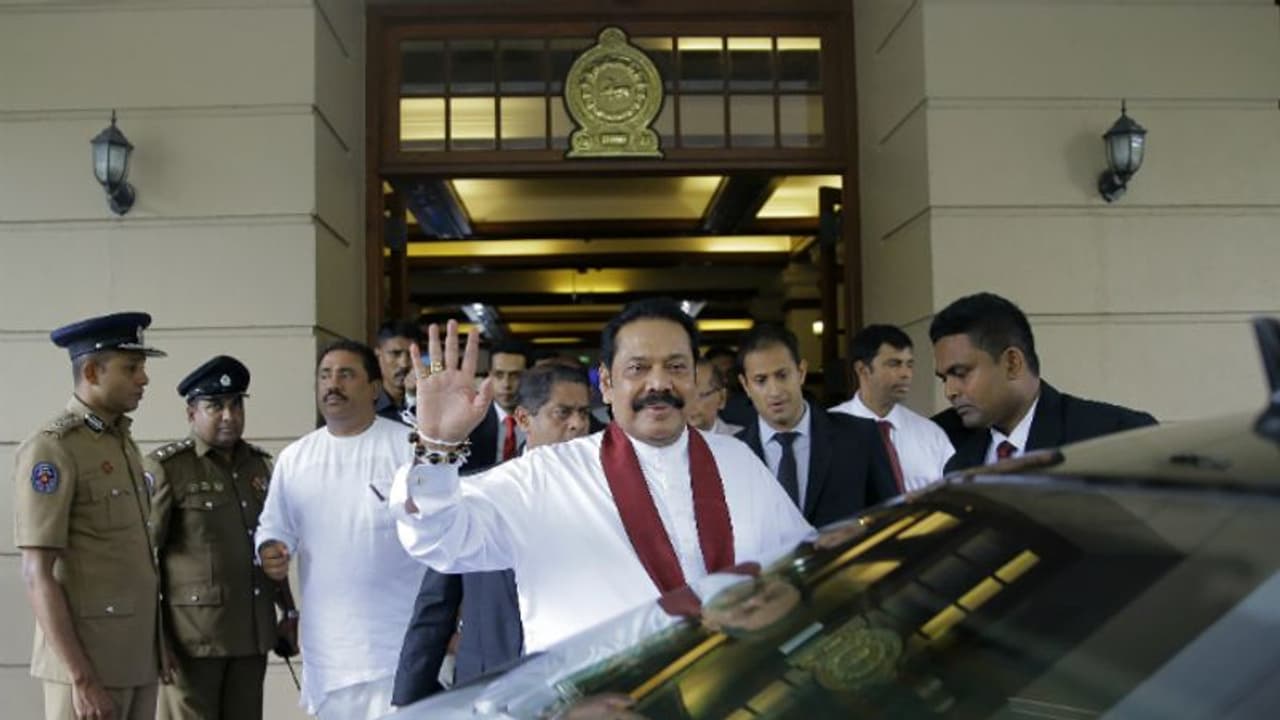The Supreme Court verdict on Tuesday overturned President Maithripala Sirisena's controversial decision to dissolve Parliament and halted the preparations for snap polls on January 5.
Colombo: The Parliament in Sri Lanka on Wednesday passed a motion of no-confidence in the controversially appointed Mahinda Rajapakse government. On Tuesday, the Supreme Court overturned a presidential decree dissolving the legislature.
Speaker Karu Jayasuriya ruled that a majority of the 225-member assembly supported the motion against Rajapakse who was made prime minister on October 26 in place of Ranil Wickremesinghe.
This doesn’t mean that Wickremesinghe, who had refused to leave the prime minister's residence, has won the constitutional showdown. Now, President Maithripala Sirisena, who had backed Rajapakse, retains the power to choose the next prime minister.
Amid chaotic scenes, Rajapakse, 72, and his legislator son Namal walked out of the red-carpeted chamber just before the speaker called for a vote.
The leaders loyal to Rajapakse attempted to grab the mace, the symbol of authority of the legislature, to disrupt the vote, but Jayasuriya went ahead.
"The ayes have it," the Speaker announced over his public address system "I rule that this House does not have confidence in the government (of Rajapakse)."
Several Rajapakse ministers came out of parliament accusing the speaker of violating parliamentary norms by holding the crucial vote against their wishes.
The Supreme Court verdict on Tuesday overturned President Maithripala Sirisena's controversial decision to dissolve Parliament and halted the preparations for snap polls on January 5.
The apex court's decision deepened the political crisis in the island nation after president Sirisena fired his coalition prime minister Wickremesinghe on October 26 and installed former strongman Mahinda Rajapaksa as the new premier.
The apex court said Sirisena's dissolution of Parliament will be suspended until December 7 and it will consider all the petitions filed on the President's decision next month before giving a final ruling.
The Supreme Court ruling means Parliament can be convened and a floor test can be taken to determine whether the President appointed Prime Minister Rajapaksa has a majority in the 225-member parliament.
(With agency inputs)
